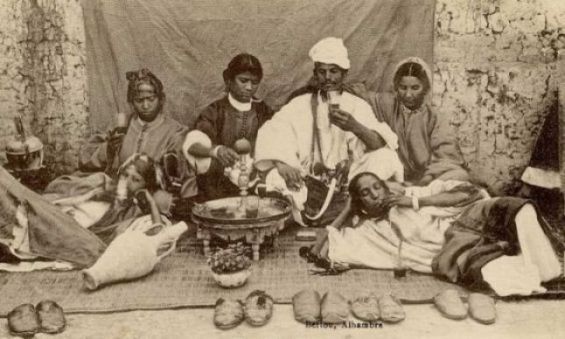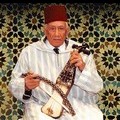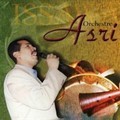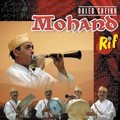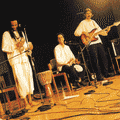«Atay» or Moroccan tea, as people like to call it nowadays, is Morocco’s flagship beverage. This aromatic drink that symbolizes hospitality, family gatherings and the end of a good meal has not always been regarded as such. In fact, tea could not get the blessing of all Muslim scholars «ulema» when it first made it to Morocco.
Discovered in 2737 BC by a Chinese Emperor, tea took centuries to make it to Moroccans’ tables and cafes. Indeed, this drink was introduced to the Arab World and the Kingdom during the 18th century.
Under the reign of Sultan Ismail, tea was a beverage of royalty and commoners did not know it existed. It was exclusively served to the king, princes, ambassadors and distinguished figures who visited the sultan’s court.
In her book «The Art of Tea in Morocco», Noufissa Kessar Raji reports that Queen Anne of England (1665-1714) thought that «two large copper tea fountains and a small amount of good quality tea would make the Emperor of Morocco release sixty-nine English captives».
Years later, English surgeon William Lempriere, summoned in 1789 to the court of Sultan Mohammed Abdallah ( Mohammed III), was surprised to see that «tea was served in beautiful porcelain cups from India, they were remarkably small, which showed that Moroccans had only small amounts of it», Noufissa Kessar Raji wrote.
In another article, a center called «Mominoun Without Borthers for Studies and Research» revealed that «Atay» rose to fame in Morocco during the 18th century, after «European emissaries gifted the Alaouite sultan tea and sugar to release captives».
In their book Abdelahad Sebti and Abderrahmane Lakhssassi «From Tea to Atay : History and Habits» (1999), the two professors report that tea widely invaded Moroccan cities between 1830 and 1860. The countryside did not know about the beverage until the end of 1800s.
Ulema vs. tea
But while this flaming hot drink has become a must-have for Moroccans, ulema were not too into it. The two historians cite the names of several Moroccan scholars who were against this drink for various reasons. One of them was Fqih Ahmed Ibn Abdelmalek Alaoui, a judge in Fes and Meknes, who died in 1826. The judge «refused to hear (in court) people who consume tea», they wrote. To back his decision, the judge relied on the opinion of El Ghazali and Imam Shafii.
By the beginning of the twentieth century, several imams shared the same opinion, refusing the consumption of tea. Sebti and Lakhssassi refer to the story of an imam relayed by Moroccan scholar Mohamed Mokhtar Soussi (1900-1963).

The imam was called Hajj Abed El Baichouri. He believed that tea «contains a substance that is forbidden». He explained that he heard of a «tea and sugar factory in Paris where they used carrion bones and blood».
Another belief that marked that era was the one spread by Ahmed Ben M’hamed Ben Mukhtar Allah. This scholar believed that drinking tea is a way of following in the devil’s footsteps.
«Drinking tea can make you lie»
The scholar also claimed that this drink «prevents people from praying» and it «could be harmful if drunk on an empty stomach». He also said that tea leads to «hearing obscene speeches and talking about people».
Abdelahad Sebti and Abderrahmane Lakhssassi, for their part, describe how Mohamed ibn Abdelkabir al-Kettani, an Al Quaraouiyine scholar, had also expressed his opposition to this drink. «He forbade the consumption of tea especially to his disciples», said his son El Baker Al Kettani.
However, more moderate opinions have been expressed by other Moroccan scholars. In «Al It'haf», quoted by Abdelahad Sebti and Abderrahmane Lakhssassi, Abd Rāhmān Ibn Zaydān related the story of Fqih Idriss (19th century), son of Sultan Moulay Slimane, who «prepared made tea during his classes». «When he saw that his students were getting bored or distracted, he ordered his servants to serve them tea to make them focus», said Ibn Zaydān.

Moroccan imam, Sheikh Mohammed Ben Al Mouayyad Ben Sidi who, in a fatwa issued in 1925, said that «we must not forbid what has not been forbidden by the Quran, sounna and consensus» when responding to a question about tea.
But over time, the war against tea calmed down allowing Moroccans and foreigners visiting Morocco to enjoy tea and discover its various variations, such as jasmine or mint tea.





 chargement...
chargement...




